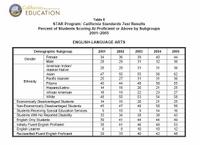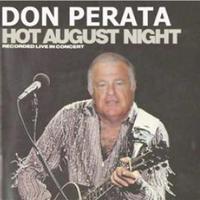The following first appeared in Capitol Weekly
By Shane Goldmacher
Ten years ago, Ray McNally was one of the hottest Republican political consultants in California. His firm, McNally Temple Associates Inc., served the GOP's A-List: President George Bush the elder and the younger, former Gov. Pete Wilson, gubernatorial candidate Bill Jones, the California Republican Party and the Republican National Committee. For years, McNally Temple was the go-to firm for the Legislature's Republicans.
But in recent years McNally has been wooing Democrats, and now he's working against the agenda of Republican Gov. Arnold Schwarzenegger, earning praise from Democrats for his courage and a bitter denunciation from Republicans who see his work as a betrayal of the party. McNally, who describes himself as "very much a Republican," works hand-in-glove with top Democratic strategist Gale Kaufman
"In this business, you usually have to stick to one side," says Garry South, a Democratic political consultant who himself worked across party lines with Schwarzenegger's Republican political strategist Mike Murphy on three initiative campaigns last year. South currently advises Controller Steve Westly in his gubernatorial bid.
"If you go to the other side, you get ostracized and excommunicated and people are suspicious of you," South says.
This year, McNally has produced all the television commercials for the Alliance for a Better California, the union coalition spearheading the effort against Schwarzenegger's "year of reform." McNally's ads are widely credited with helping destroy the Governor's approval ratings, which plummeted from a high of 65 percent last September to a new low of 37 percent in June, according to the Field Poll.
There's more: Less than a month before the October 2003 recall election, McNally incorporated a new consulting firm, Independent Campaign Group Inc., which made independent expenditures on behalf of Democrats in the most competitive legislative races in 2004, including Senator Mike Machado of Stockton and Assemblywoman Nicole Parra of Bakersfield.
McNally is president of the Independent Campaign Group, which spent nearly $1 million in independent expenditures to help elect Democrats last year. When asked why he established a second firm—and one that focuses on aiding Democrats—without using the recognizable McNally Temple name, he said it was largely a procedural and paperwork matter.
"Part of it was bookkeeping, part of it was trying to keep things cleaner. The notion that we were trying to hide something is ludicrous, considering that we dutifully filed all our public disclosure papers. In this business, there are no secrets," McNally told Capitol Weekly.
Today, McNally is a consultant without a party. He is a self-identified Republican working for Democrat-leaning unions with a bifurcated client list that is exceedingly rare for its bipartisanship. It includes the California Teacher's Association and the Howard Jarvis Taxpayers Association, the California Chamber of Commerce and California Correctional Peace Officers Association.
Dave Gilliard, a Republican consultant who worked to qualify the recall in 2003, said that "it is not a shocker to anyone" that McNally is working against a Republican governor.
"They started transitioning maybe ten years ago," said Gilliard. "They picked up some big clients on the other side [of the aisle]."
Indeed, the key to understanding the political evolution of McNally Temple is following the shifting politics of the California Correctional Peace Officers Association, the powerful prison guard union, which is McNally's biggest client. McNally's relationship with the CCPOA began more than fifteen years ago, when the correctional officers were considered more of a "Republican union" and were staunch supporters of then-Governor Pete Wilson. In 1990, the prison guards doled out $1 million to Wilson, which they followed up with another $500,000 check for his reelection bid in 1994.
But in 1998, the corrections officers had to decide between two tough-on-crime gubernatorial candidates, Democratic Lt. Gov. Gray Davis and Republican Atty. General Dan Lungren, both of whom they had supported in past elections. The union endorsed Davis, the first Democrat vying for the governorship to win the CCPOA stamp of approval in sixteen years.
"It was a turning point for our firm because it really forced us to sit down and talk about who do we stand with," mused McNally, who has worked to elect Republicans in California for more than 30 years. "We had some very long talks about where our loyalty lied and ultimately we decided we have to stand with our clients."
It was a turning point for the Davis campaign, as well. In the 1998 campaign, the CCPOA spent more than $2 million on behalf of Gray Davis. And so, not for the last time, McNally began cutting ads for a Democrat.
This year, the ads he has produced for the Alliance have meant big money for McNally Temple. About 36 percent—more than $3.5 million— of the money spent in the Alliance's anti-Schwarzenegger campaign has shuffled through the hands of McNally Temple. McNally didn't provide details, but if his firm received the industry standard of 15 percent, McNally Temple has collected a cool half-a-million dollars in ad-buying fees. That, of course, is in addition to the more than $300,000 in consulting fees McNally Temple has garnered from the Alliance, according to the latest data available from the Secretary of State.
His firm has worked closely with Kaufman, the Democratic consultant and former Willie Brown staffer who operates a consulting firm that counts Speaker Fabian Nunez, the Alliance for a Better California, and the Assembly Democratic caucus among her biggest clients. Those are hardly traditional allies for a self-identified Republican.
This is not the first time that Kaufman and McNally have teamed up. In 1998, they joined forces to defeat Proposition 226, a paycheck protection act similar to this year's Proposition 75. Then, as now, the CCPOA opposed the initiative.
"It's not the easiest thing for us to do, to go up against a Republican governor," said McNally of opposing Schwarzenegger's agenda, "but like I say, he was the one who initiated the attack on clients of ours."
McNally often refers to Schwarzenegger baiting his top client, the CCPOA, into battle. He tells of how before his election, Schwarzenegger had wooed the prison guards.
"He smoked cigars with them. He got them on the set of Terminator 3…He visited their convention in San Diego. He posed for pictures. He was their best buddy," said McNally.
But then the governor appointed Rod Hickman as Secretary of Corrections, a choice that "dumbfounded" the CCPOA, both because they were never consulted and because Hickman is a man who, according to McNally, "they have no respect for."
Then in the 2005 State of the State address, Schwarzenegger announced that the Department of Corrections would be the first state agency to be reorganized. "It is an agency in which there has been too much political influence, too much union control and too little management courage and accountability. For many months, you could not pick up a newspaper without reading about a youth dying in prison, or codes of silence, or abuse of force. I want to put the corrupt people in our prisons on the same side of the bars."
That speech spurred the corrections officers' pact with the teachers and firefighters in opposing Schwarzenegger. And as goes the CCPOA, so goes McNally Temple.
Even before the speech, McNally's Independent Campaign Group had spent $280,000 for Democrat Nicole Parra's Assembly campaign and $197,000 on behalf of Mike Machado's Senate. The money—all from the CCPOA—was used to buy TV spots, mailers and lawn signs in races that were the top targets on the Republicans' 2004 hit list.
But how does his support of Democrats in the only real swing districts in the state help the Republican Party?
"How could Dean Gardner be good for the Republican party?" McNally responds, referring to Nicole Parra's general election opponent who came under fire for his private business dealings and multiple name changes during the campaign. "Look at the quality of the candidate. He changed his name like 19 times… One of the worst things that could happen to the Republican Party is to have Dean Gardner get elected." Schwarzenegger, it should be noted, endorsed Gardner.
Still, McNally seems to struggle with his dual identity as a union supporter and Republican advocate. When discussing the issue of paycheck protection in 1998, he distanced himself from the very labor groups he cut ads for.
"Our argument was, `This is nuts.' This will not do anything to excite Republican turnout, but it will give labor a bloody shirt to organize with. And it did," says McNally. "And so labor organized like we hadn't seen in California in years and they carried that organization through the general election, where they clobbered Dan Lungren."
But the "they" that clobbered Lungren included McNally himself.
Ray McNally has two irreconcilable loyalties: to labor (and his top client the CCPOA) and to the Republican Party, though he accuses the Governor of making his loyalties so incompatible.
"The governor did what no one else has been able to do for over fifteen years and that is to unite the prison guards with the teachers" said McNally. "Long-term, I think what the Governor is doing is going to have a very bad impact on the Republican Party. It's going to hurt it." |









